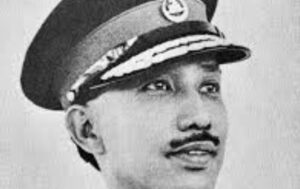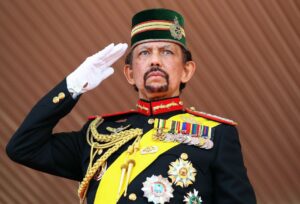The Sultanate of Brunei, a small but rich nation on the island of Borneo, has a long history of monarchy that dates back to the 14th century. The rulers of Brunei, known as sultans, have played a crucial role in shaping the country’s identity, culture, and governance.
This post provides a detailed list of the sultans of Brunei, their reigns, and notable achievements, as well as some challenges they faced during their tenure.
READ ALSO: Presidents That Have Ruled Qatar Till Date
| Name | Reign Start | Reign End |
|---|---|---|
| Muhammad Shah / Awang Alak Betatar | 1363 | 1402 |
| Abdul Majid Hassan / Maharaja Karna | 1402 | 1408 |
| Ahmad / Awang Pateh Berbai | 1408 | 1425 |
| Sharif Ali / Sultan Barkat | 1425 | 1432 |
| Sulaiman | 1432 | 1485 |
| Bolkiah / Nakhoda Ragam | 1485 | 1524 |
| Abdul Kahar | 1524 | 1530 |
| Saiful Rijal | 1533 | 1581 |
| Shah Berunai | 1581 | 1582 |
| Muhammad Hassan | 1582 | 1598 |
| ---- | ---- | --- |
| Hassanal Bolkiah | 5 October 1967 | Incumbent |
The First Sultanate of Brunei: Muhammad Shah

The early sultans of Brunei laid the groundwork for the Sultanate’s development. Muhammad Shah, the first sultan, is credited with establishing the sultanate around 1363. His reign marked the beginning of a lineage that would endure for centuries.
Sulaiman, his successor, is notable for abdicating in favor of his son, Bolkiah, who is often regarded as one of the most significant sultans due to his military innovations and territorial expansions.
Sharif Ali, who ruled from 1425 to 1432, is particularly noteworthy as he was not of direct royal descent but was chosen for his Islamic credentials. His reign marked a significant period of consolidation of Islamic practices in Brunei.
READ ALSO: List of Prime Ministers That Have Ruled Oman Till Date
The Current Sultan: Hassanal Bolkiah

Sultan Hassanal Bolkiah has been the reigning monarch since October 5, 1967, and is the 30th sultan of Brunei. He ascended the throne following the abdication of his father, Sultan Omar Ali Saifuddien III. Under his leadership, Brunei gained independence from British rule in 1984, marking a significant turning point in the nation’s history.
Achievements
- Economic Development: Sultan Hassanal has overseen substantial economic growth, primarily driven by the oil and gas sector, which has made Brunei one of the wealthiest nations per capita.
- Cultural Preservation: He has been a strong advocate for the preservation of Brunei’s Islamic and Malay heritage, promoting cultural events and initiatives that reinforce national identity.
- Infrastructure Growth: The Sultan has invested heavily in infrastructure, including education and healthcare, which has significantly improved the quality of life for Bruneians.
Challenges
Despite his achievements, Sultan Hassanal’s reign has not been without challenges. His absolute monarchy has faced criticism for a lack of political pluralism and freedom of expression.
The political landscape in Brunei remains tightly controlled, which has led to calls for reform from various quarters, including international human rights organizations.
READ ALSO: Presidents That Have Ruled Laos Till Date
Conclusion
The history of the sultans of Brunei is a testament to the enduring legacy of monarchy in Southeast Asia. From the establishment of the Sultanate by Muhammad Shah to the modern leadership of Sultan Hassanal Bolkiah, each ruler has contributed to the growth of Bruneian history.
As Brunei continues to navigate the complexities of modern governance and global engagement, the role of the sultan remains pivotal in shaping the future of this small but significant nation.
